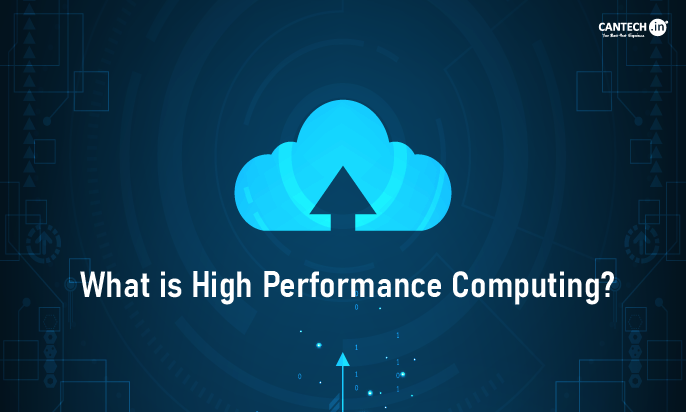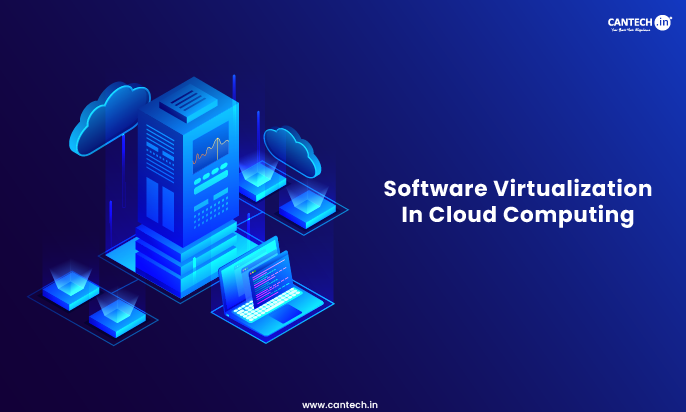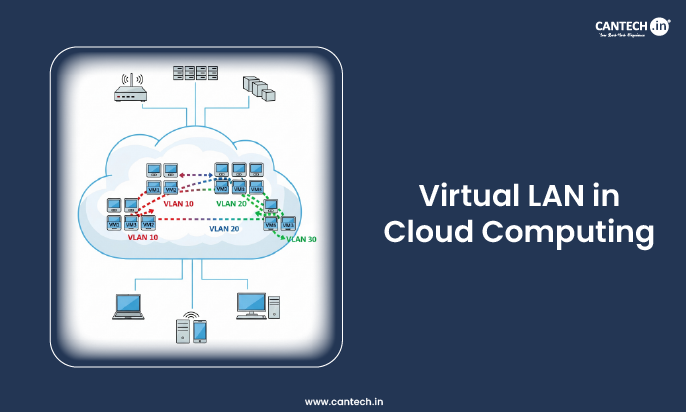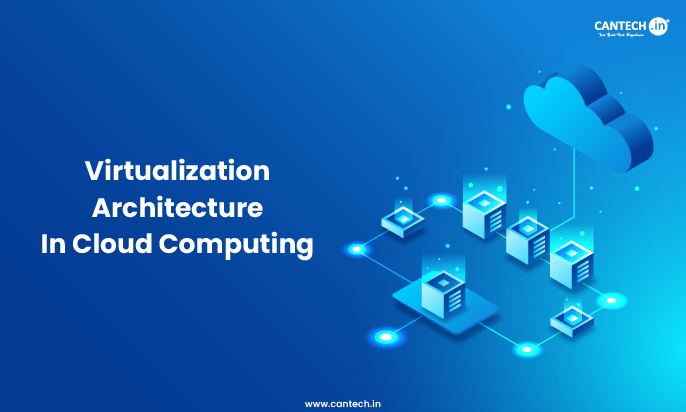Introduction
High-performance computing (HPC) handles complex tasks that regular computers can’t with super-powerful systems and advanced techniques. It processes massive amounts of data at super-fast speeds. For this, it breaks down heavy workloads and handles them efficiently. All in all, HPC solves critical challenges in various fields that require intense computing power.
This blog covers ‘What is High-Performance Computing (HPC)?’ comprehensively.
Let’s first cover the basics of ‘what is HPC’, and know how it works.
What is High Performance Computing (HPC)?
High-Performance Computing (HPC) involves performing complex calculations at extremely high speeds using multiple interconnected computers. In this system, a single computer won’t handle tasks one by one; HPC clusters (groups of computers working together) get the workload and process data in parallel.
For example – a standard desktop computer with a 3 GHz processor can handle around 3 billion calculations per second. On the other hand, a high-performance computer system can perform quadrillions of calculations per second!
How does HPC Work?
When computers process tasks one by one, it is serial computing. However, HPC uses parallel computing – multiple tasks run together on multiple interconnected computers. Below is the process of how it works –
- Parallel Computing – HPC systems make calculations much faster as they use thousands or even millions of processors at the same time. Each one works on different parts of a problem.
- HPC Clusters – Groups of high-speed computers connected from HPC clusters. One cluster can have over 100,000 nodes. Well, each computer is called a node that uses powerful processors like multi-core CPUs or GPUs.
Most HPC clusters run on Linux. Well, some also use Windows or Unix. These advanced hardware and software make HPC systems heavily powerful.
- High-Performance Components – All HPC system parts provide speed such as fast memory, high-speed networking, and powerful storage. These components work together for smooth and efficient processing.
- Message Passing Interface (MPI) – HPC systems depend on MPI to coordinate tasks between different nodes. This way, different parts of the system communicate efficiently.
Understanding the difference between CPU and GPU is essential to see how they contribute to HPC systems. Read our full article on the difference between GPU and CPU.
Why is HPC Important?
Now, let’s discuss the importance of high-performance computing –
-
Making Fast Scientific Discoveries
Scientists can run complex simulations and analyze vast datasets to make discoveries faster for space exploration to medical research.
-
Driving Industrial and Technological Advancements
For aerospace, automotive, energy and other industries, HPC Servers is used to design efficient machines and improve product performance.
-
Big Data and AI
With the increase in AI, IoT, and 3D imaging data, companies need to have high-speed computing to process massive datasets and analyse the same in real-time.
-
Solving Complex Problems
In climate modelling, nuclear physics, and financial forecasting, processing huge amounts of data with HPC gives accurate predictions.
-
Optimise Operations and Boost Business Efficiency
Large-scale transaction processing and data warehousing with HPC helps with reduction in costs and gaining valuable insights.
Challenges with HPC
High-Performance Computing (HPC) is powerful but it has various challenges. They are discussed below –
- High Costs – Building and operating HPC systems is expensive due to costly hardware, specialized software, huge energy consumption and requirement of specialists.
- Scalability Issues – Expanding an HPC setup to meet increased workloads need careful planning and optimization of performance.
- Complex Data Management – HPC systems generate and process huge amounts of data that need advanced storage solutions, tools, and high-speed networks.
- Programming Requirements – HPC relies on parallel programming techniques and it is more complex. Developers need to learn new methods to design and optimize software that can run on multiple processors.
- Limited Software and Tool Compatibility – Need to find compatible applications. This can limit their ability to fully utilize HPC capabilities.
- Power Consumption and Cooling – HPC systems generate a lot of heat and need electricity. Special cooling solutions are also required to prevent overheating.
Benefits of HPC in the Cloud
Cloud-based High-Performance Computing (HPC) can provide powerful computing without needing any expensive on-premise infrastructure. Cloud-based solutions replace building and maintaining costly HPC clusters. Let’s discuss more HPC in the cloud advantages –
- Faster Deployment & Easy Setup – You can configure and launch powerful computing resources almost instantly. Traditional HPC systems take time to set up.
- Scalability on Demand – You can scale up or down easily on the cloud based on workload demands. You can run a one-time simulation or handle ongoing AI training.
- Cost Efficiency – Instead of investing millions in hardware and maintenance, cloud-based HPC lets businesses pay only for the computing power they use. This reduces upfront costs and makes high-performance computing more accessible.
- Managed Infrastructure & Support – Cloud providers handle the complex infrastructure, networking, and maintenance for companies. They need not worry about system management.
HPC Use Cases
HPC is at the core of modern problem-solving. Let’s discuss various applications of HPC below –
Medical Research for Healthcare, Genomics, and Life Sciences
HPC can do genome sequencing in less than a day which took 13 years before. It is speeding up medical advancements and helps in drug discovery, cancer research, and analysis of patient records.
High-Quality Videos and Rendering 3D Graphics in Media and Entertainment
HPC speeds up the processes that require huge computing power. It reduces production time and improves media quality. You can create visual effects too.
Banks and Financial institutions for fraud detection, risk analysis, and real-time trading
They can carry out complex simulations such as Monte Carlo analysis. Banks can make better investment decisions.
Weather Forecasting and Climate Modeling for Government and Defense
Governments use it to analyze vast amounts of climate data. This way they improve disaster predictions. Also, they conduct energy research.
Oil and Gas exploration, Renewable Energy Research, and More in the Energy Sector
HPC helps analyze geological data, simulate reservoirs, and optimize wind and solar energy systems.
Automotive Industry & Car Manufacturers Design Efficient & Safe Vehicles.
Physical prototypes are built after HPC simulates aerodynamics, battery performance, and crash tests.
Cybersecurity
It processes a lot of data in real-time to detect cyber threats and prevent attacks before they happen.
Types of HPC Clusters
High-performance computing (HPC) clusters have multiple computers (nodes) connected to work together. Thus, they process complex tasks at high speeds. Below are the key components and types of HPC clusters –
Key Components of HPC Clusters
- Compute (Processing Power) = The nodes (individual computers) that perform calculations and run simulations.
- Network (Connectivity) = Fast & low-latency networking for smooth communication between nodes.
- Storage (Data Management) = High-speed storage systems to store and retrieve large datasets quickly.
Types of HPC Clusters
The choice of HPC cluster depends on the workload. It can be artificial intelligence (AI), scientific research, financial simulations or any other HPC applications, the right cluster setup provides smooth and powerful computing performance.
Cluster Computing
A group of computers (nodes) placed physically close together and connected through high-speed networks is called Cluster Computing. These clusters work in parallel. Thus. they ensure minimal delay and faster processing.
Scientific research, simulations, and artificial intelligence (AI) training use this type of HPC.
Distributed Computing
Distributed computing connects multiple computers spread across different locations. They are not in a single location like Cluster computing. They use a mix of on-premise servers and cloud resources. Thus, it is highly flexible and scalable. Machine learning (ML) and deep learning leverage this type of computing, often use the Best GPU for deep learning to enhance performance and efficiency in building complex models.
Homogeneous vs Heterogeneous Clusters
- Homogeneous Clusters – All nodes have similar hardware and performance capabilities. This aspect makes them easier to manage.
- Heterogeneous Clusters – The nodes have different configurations (some optimized for CPU processing and others for GPU acceleration). Hence, it can provide greater efficiency in running diverse workloads.
How HPC Clusters and Cloud Computing Power Data-Intensive Applications
High-performance computing (HPC) only meant owning a supercomputer or setting up expensive on-premise clusters before a decade. However, private and public cloud-based HPC provides access to high-speed computing power. You do not need heavy infrastructure investment for it.
Why Cloud HPC is Growing?
- Rising Demand for Real-Time Insights – Processing complex data to detect credit card fraud, train AI models, etc. HPC delivers fast and accurate results.
- The AI and Big Data Boom – Industries need scalable computing power for AI and big data applications. Cloud HPC supports massive workloads like generative AI, machine learning and deep learning, financial modelling, etc.
- Faster Networking with Remote Direct Memory Access (RDMA) – Computers can exchange data directly using RDMA without involving the operating system. Hence, this reduces delays and boosts performance. This is key to making cloud-based HPC possible.
- HPC-as-a-Service (HPCaaS) – Cloud providers like AWS, Azure, Google Cloud, and IBM Cloud offer HPC solutions for businesses of all sizes. They can run high-performance workloads without maintaining physical infrastructure.
Conclusion
High-Performance Computing (HPC) is no longer just for research labs and government agencies. It is inevitable for businesses, industries, and scientific advancements too. In the coming years, we will see HPC technology and big data merging to give even more advanced simulations, analytics, and AI-driven applications. HPC will remain a driving force behind big discoveries and industrial progress.
FAQs on What is HPC?
What is HPC?
Multiple powerful computers processing huge amounts of data at extremely high speeds is called HPC. It is used to solve complex problems that regular computers cannot handle efficiently in science, engineering, and business.
What is an HPC cluster?
An HPC cluster is a group of interconnected computers (nodes) that work together to process tasks in parallel. These clusters speed up computations for AI, simulations and data analysis.
Why is High-Performance Computing needed?
HPC is needed to –
- Complete time-consuming tasks much faster.
- Handle large-scale simulations, AI, and big data analytics.
- Solve complex problems that require high-speed parallel processing.
How do HPC jobs work?
HPC jobs fall into two categories. It ensures both types of workloads are processed efficiently.
- Loosely Coupled Jobs – Tasks run independently without depending on each other (e.g., rendering movie frames).
- Tightly Coupled Jobs – Tasks require constant communication between nodes to complete (e.g., weather forecasting).








